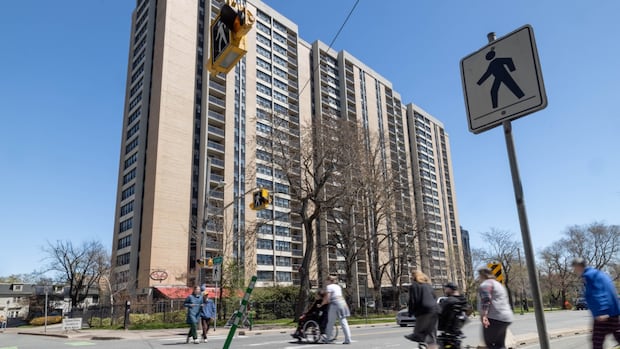Even though he has a mid-level job at a university and lives in a three-bedroom apartment with roommates, Halifax resident Samuel Turpin still lives paycheque to paycheque.
The 28-year-old says he’d like to live in a one-bedroom apartment, but there’s no way he could afford it.
It’s “just increasingly frustrating to be trying to afford to have a roof over your head,” said Turpin, adding that the idea of having to find a new place to rent in the current market is “immensely” scary.
“It’s gotten to the point where I am wary of reporting issues in the apartment … in case the landlord uses it as an excuse to renovict.”
Turpin pays about $1,000 per month in rent and shares a single bathroom with his three roommates.
He’s likely one of many people in the city who would not be able to afford an apartment of their own.
In 2024, a renter in Halifax needed to make about $27 an hour working full time to afford the average one-bedroom apartment, according to a recent report from the Canadian Centre for Policy Alternatives think-tank.
That “rental wage” is what would be needed to spend 30 per cent of one’s income on housing — a threshold below which housing is considered affordable for households, according to the Canada Mortgage and Housing Corporation.
Renter Anya Ruparell worked a job paying $27 an hour this summer and said that isn’t a living wage for students like them.
“It wasn’t enough to make me feel financially stable, especially going into the school year when you can’t work full time,” they said, adding that it’s a stretch to make ends meet even when working full time.
According to a previous report from the think-tank, the Halifax one-bedroom rental wage was $17.49 in 2018.

The report compared the rental wage to the minimum wage.
In Halifax, “you almost [needed] to work two full-time, minimum-wage jobs in order to make that one-bedroom affordable,” said Marc Lee, an economist and the report’s co-author.
Nova Scotia’s minimum wage did rise to $15.70 an hour in April and will go up again to $16.50 on Oct. 1.
Lee said raising the minimum wage can help with rental affordability.
“Provincially set minimum wages right now could be a bit of a challenge in the sense that, you know, you’re setting a minimum wage for … small towns and large cities at the same time,” he said.
“So maybe we could have some flexibility to allow larger cities that have the most pressures on their rental markets to have higher minimum wages.”
Still, Lee said it’s unrealistic that minimum wages would rise fully to the levels needed and there need to be government investments in non-market and public housing.
“Similar to what we did in the ’60s, ’70s and ’80s. A lot of the [existing] affordable rental stock still is a legacy of investments that were made back then.”
The report also used newer Statistics Canada data to estimate the rental wage needed to afford vacant units at the often higher market prices.
For the first three months of 2025 in Halifax, that was about $34 an hour for a one-bedroom apartment — the ninth-highest among 39 cities. For a two-bedroom, it was about $43.







